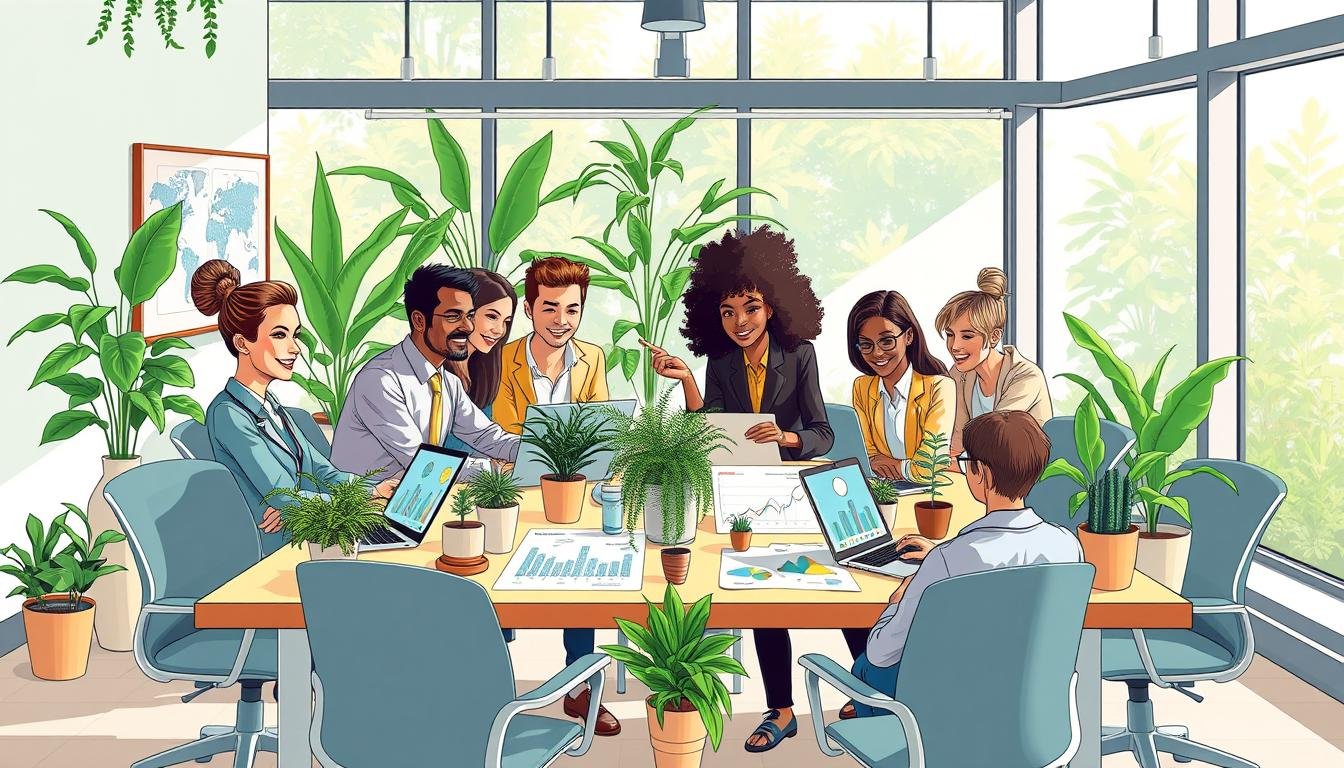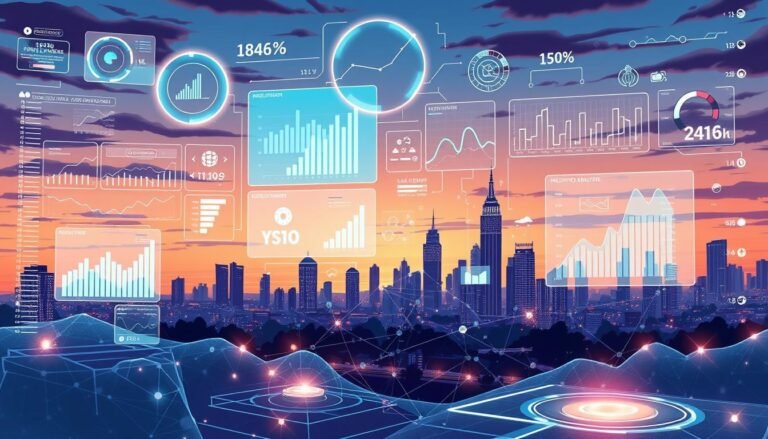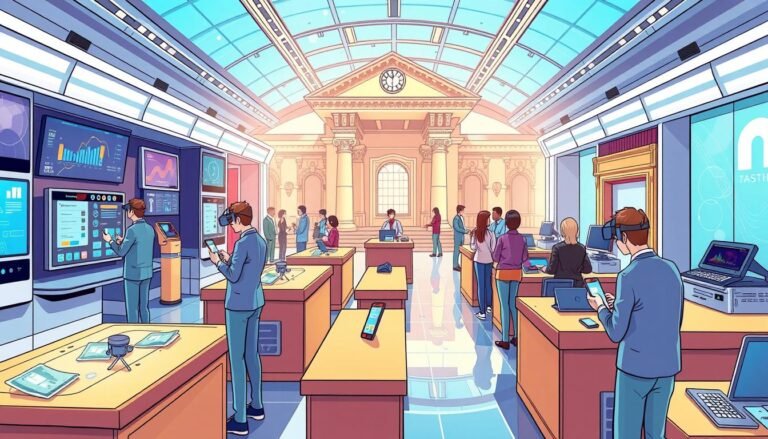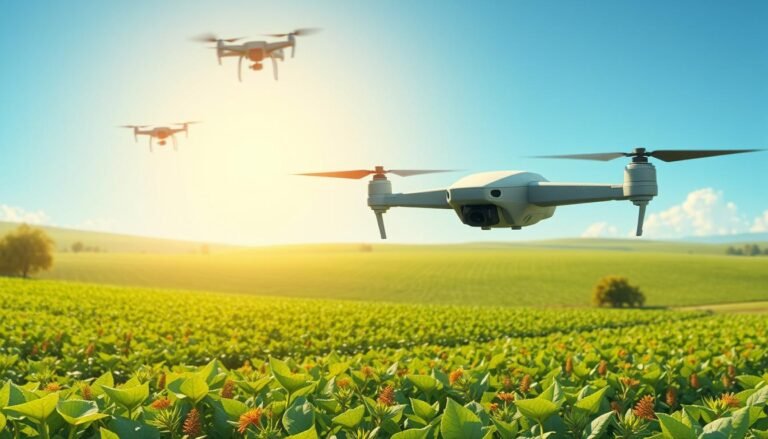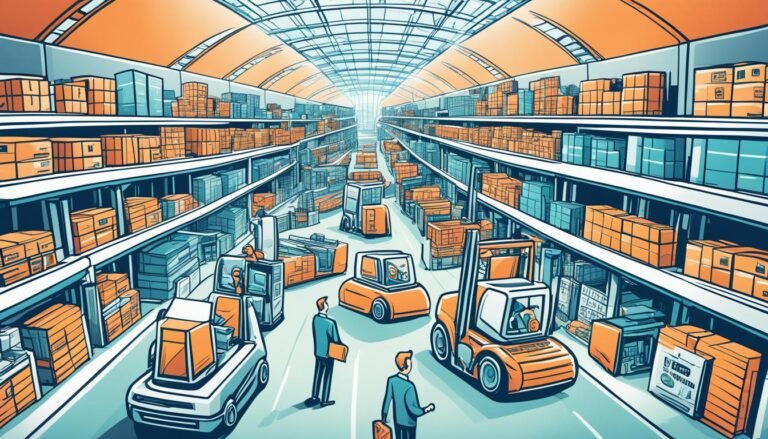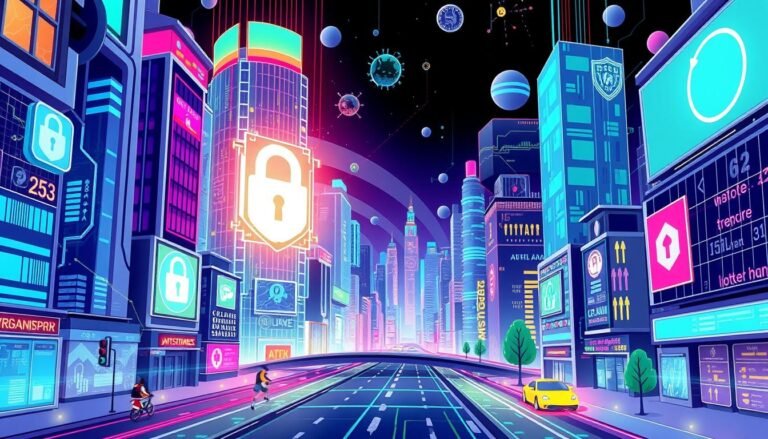Sustainability Skills Every Professional Should Know in 2025
Are you ready for the sustainability skills needed for success in 2025?
The business world of the 21st century is changing. It now values profit, ethical responsibility, green practices, and caring for the environment. Harvard Business School Professor Rebecca Henderson says adding sustainability to business plans helps the planet, society, and the economy. It’s about balancing people, planet, and profit for a better future.
Recently, 64 percent of big companies worldwide shared their carbon goals. This shows a big step towards being open and responsible. The push for sustainability has grown, with a seven percent rise in companies setting carbon targets. In 2019, 90 percent of US companies shared their sustainability efforts, a big jump from 20 percent in 2011.
Sustainability is not just about the environment. It’s also about making money. Many businesses find that going green saves costs and attracts more customers. The need for green skills is huge, with almost a third of UK jobs needing them. Plus, most companies see a good return on green training within a year.
Key Takeaways:
- Understanding sustainability skills is crucial for professional success by 2025.
- Major global companies are increasingly disclosing their carbon targets.
- Sustainability initiatives can lead to substantial economic benefits and cost savings.
- 90% of US companies now publish sustainability reports, a vast increase from a decade ago.
- Green skills are in high demand, reflecting the shifting priorities of the job market.
Understanding Environmental Awareness and Its Importance
Environmental awareness means knowing how our actions affect the planet. It’s about trying to make things better and reduce harm. In today’s world, climate change mitigation and sustainability are big topics. People who care about the environment are crucial for making things better for everyone and the planet.
What is Environmental Awareness?
Environmental awareness is about seeing how everything in nature is connected. It’s knowing how our actions can hurt or help the environment. For example, buildings and construction are a big source of pollution, making up about 40% of all emissions.
When the Environmental Protection Agency (EPA) was created in 1970, it was a big step. It showed that the government understood the need to protect the environment.
The Role of Environmental Awareness in Professional Success
Having environmental awareness at work is important. It helps meet rules and makes customers happy. Businesses are also under pressure to be green and cut down on pollution by 2050.
There’s a big need for people who know about the environment. This includes knowing about science, rules, and how to check on things. Learning about these topics can help you succeed in your career.
Companies that focus on climate change mitigation can stay ahead. People who are good at solving problems and leading are especially valuable. They help deal with new technologies and the need for more green skills.
So, caring about the environment is not just good for the planet. It also helps professionals grow and succeed in a changing world.
The Role of Leadership in Promoting Sustainability
In today’s business world, leadership is key to promoting sustainability. Leaders need to have strong sustainability skills. This helps guide their companies towards greener practices and ethical actions.
Customers want companies to avoid wasteful and harmful practices. Laws are getting stricter, affecting how businesses operate. If a company fails in sustainability, competitors can use it against them. Investors are also moving towards sustainable investments, pushing businesses to change.
Today, employees want to work for companies that care about the environment. This shows how important leadership that focuses on sustainability is. Leaders need skills like systems thinking, responsible innovation, and environmental awareness to handle these challenges.
Even after over ten years, the impact of leaders like Steve Jobs is still seen today. This shows how lasting effective leadership can be in sustainability. Yet, many board members are retired or semi-retired, which might lead to a gap in understanding today’s sustainability issues.
The rise of Chief Sustainability Officers (CSOs) in companies shows a shift towards integrating sustainability into operations. CSOs work with various departments to ensure sustainability is part of the business’s core.
| Stakeholder | Role in Sustainability |
|---|---|
| Investors | Opt for sustainability-focused investments |
| Employees | Seek environmentally responsible employers |
| Consumers | Demand waste-free and non-harmful practices |
| Regulators | Implement stringent sustainability requirements |
In conclusion, strong leadership is vital for guiding companies towards sustainability. Working with different stakeholders and focusing on the three pillars of sustainability is essential. By developing the right skills, leaders can motivate their teams to achieve sustainability goals.
Sustainability Skills Every Professional Should Know
In today’s fast-changing world, professionals in sustainability need a wide range of skills. They must know environmental science, conduct audits, and share sustainability plans well. These skills help tackle big environmental problems.
Foundational Knowledge in Environmental Science
Starting in sustainability, you need to know environmental science well. This means understanding how to use resources better and choose eco-friendly options. Knowing about renewable energy is also key.
This knowledge helps make smart choices and plans. For instance, it lets you figure out how to lessen harm to the climate.
Skills for Conducting Sustainability Audits
Doing detailed audits is key to see how a company affects the environment. These audits spot chances to use resources better and go green. You need to know about rules, data, and how to manage vendors.
Being good at talking to vendors is also important. This ensures everyone works towards sustainability goals.
Communicating Sustainability Effectively
Being able to share sustainability plans clearly is just as vital. Good communication skills are a must for those in sustainability. When you explain your plans well, more people will support them.
This support helps build a green culture. It also shows the value of using renewable energy, making it easier to get support for these projects.
| Key Skills | Importance |
|---|---|
| Environmental Science | Understanding systemic environmental issues and their corporate intersections |
| Sustainability Audits | Assessing environmental impact and finding mitigation strategies |
| Effective Communication | Securing stakeholder and employee buy-in for eco-friendly solutions |
By learning these key skills, sustainability experts can guide their companies towards a greener future. They’ll help use resources better and protect the environment.
Innovative Approaches to Sustainable Business Practices
Sustainability is key in today’s fast-changing business world. Companies that focus on green practices can meet their eco-goals and stand out. This approach is crucial for success.
Examples of Successful Sustainability Initiatives
Companies like IKEA are leading the way by aiming to be fully circular by 2030. They design products for reuse and recycling. This cuts down waste and saves resources.
Unilever is also making big strides. It wants to be “carbon-positive” by 2030. They plan to use 100% renewable energy and support sustainable farming.
These efforts show that sustainability can lead to success and profit. Over half of consumers prefer to buy from companies that care about the planet. This shows the demand for green products.
Creative Problem-Solving in Sustainability
Creative thinking is key to solving sustainability challenges. Patagonia promotes repair and reuse, offering services to make products last longer. This supports the circular economy and keeps customers loyal.
Doing sustainability audits is also important. They help companies understand their impact on the environment and society. Setting clear, achievable goals helps track progress.
Working together with employees and stakeholders is vital. It ensures everyone is on board with green goals. This creates a culture of innovation and growth.
As businesses face the challenges of sustainability, investing in green practices is essential. It fulfills corporate duty and ensures a sustainable future.
Building Personal Resilience in the Face of Sustainability Challenges
In the world of sustainability, personal resilience is key. It helps us face sustainability challenges and deal with their mental impact.
Being able to handle constant change is vital. The sustainability field is always changing, and being resilient is essential. It’s not just good for you; it’s necessary for your job.
A strong support network is crucial. Having friends at work and in other areas helps a lot. It creates a team spirit that boosts resilience.
Don’t forget about self-care. Taking care of your body and mind prevents burnout. By focusing on wellness, you can keep your personal resilience strong and face sustainability challenges head-on.
Learning from failures is important too. By reflecting on setbacks, you can get better at your job. This way, you can grow more resilient and tackle challenges more effectively.
Keeping a positive attitude is also key. Celebrating small wins and staying hopeful helps a lot. It keeps you motivated and committed to sustainability. In fact, 80% of professionals say setting achievable goals is crucial for resilience.
| Factor | Percentage Importance |
|---|---|
| Embracing Learning Mindset | 90% |
| Collaboration Across Departments | 85% |
| Prioritizing Wellness Strategies | 75% |
| Setting Realistic Goals | 80% |
| Constant Innovation | 95% |
Conclusion
Looking ahead to 2025, it’s clear that adding sustainability skills to jobs is key. LinkedIn’s Green Jobs report shows green job openings grew 8% from 2015 to 2021. Yet, the talent pool only grew 6%, showing we need to upskill and reskill fast.
Creating a sustainable future means learning new skills. These include STEM, liberal arts, data use, and digital tech. Microsoft and Boston Consulting Group found 60% of sustainability team members got new skills to meet their roles. This shows how important it is to keep learning to tackle climate issues.
Companies are under pressure to be more efficient and meet carbon emission reporting rules. This makes learning how to reduce carbon footprints even more important.
The shift to sustainability is a big moment, like changes in education and tech before. Companies are taking the lead, with 68% of sustainability roles filled from within. This shows companies can grow their own sustainability experts.
Now, businesses and governments must work together to fill the sustainability skills gap. This way, the next generation of workers can lead to a greener future. Sustainability is a big challenge, but it’s also a chance to change how we define success.
Source Links
- 8 Sustainability Skills for Working Professionals
- Sustainability Skills & Knowledge Vital to Every Job | UKGBC
- 7 sustainability skills every built environment professional needs
- Environmental Awareness – HSI
- Sustainability Skills: Redefining Leadership for the Future
- The New Sustainable Leadership Era – Why It’s Here to Stay
- What Is Sustainability Leadership?
- Optimize your resume: top 10 skills for sustainability professionals
- Top Ten Skills for Successful Sustainability Professionals
- The Fastest Growing Career in Sustainability and Required Skills
- Exploring Sustainability in Business: Best Practices | JWU CPS
- 4 Strategies for Bridging the Sustainability Skills Gap | Sustainable Brands
- What do you do if your resilience is tested in a sustainability profession?
- What do you do if sustainability professionals face challenges and need to overcome them with resilience?
- Closing the Sustainability Skills Gap: Helping businesses move from pledges to progress – Microsoft On the Issues
- Closing the Sustainability Skills Gap: essential competencies for the modern workforce
- A Skills-Based Approach to Driving Organizational Sustainability

